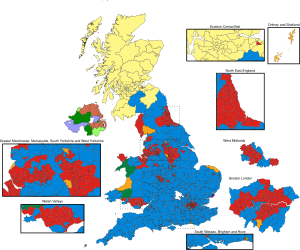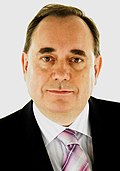User:Ivan3999/sandbox
| ||||||||||||||||||||||||||||||||||||||||||||||||||||||||||||||||||||||||||||||||||||||||||||||||||||||||||||
All 650 seats in the House of Commons 326 seats needed for a majority | ||||||||||||||||||||||||||||||||||||||||||||||||||||||||||||||||||||||||||||||||||||||||||||||||||||||||||||
|---|---|---|---|---|---|---|---|---|---|---|---|---|---|---|---|---|---|---|---|---|---|---|---|---|---|---|---|---|---|---|---|---|---|---|---|---|---|---|---|---|---|---|---|---|---|---|---|---|---|---|---|---|---|---|---|---|---|---|---|---|---|---|---|---|---|---|---|---|---|---|---|---|---|---|---|---|---|---|---|---|---|---|---|---|---|---|---|---|---|---|---|---|---|---|---|---|---|---|---|---|---|---|---|---|---|---|---|---|
| Opinion polls | ||||||||||||||||||||||||||||||||||||||||||||||||||||||||||||||||||||||||||||||||||||||||||||||||||||||||||||
| Registered | 46,354,197 | |||||||||||||||||||||||||||||||||||||||||||||||||||||||||||||||||||||||||||||||||||||||||||||||||||||||||||
| Turnout | 62.4%[1] ( | |||||||||||||||||||||||||||||||||||||||||||||||||||||||||||||||||||||||||||||||||||||||||||||||||||||||||||
| ||||||||||||||||||||||||||||||||||||||||||||||||||||||||||||||||||||||||||||||||||||||||||||||||||||||||||||
 Colours denote the winning party, as shown in the main table of results. * Figure does not include the Speaker of the House of Commons John Bercow, who was included in the Conservative seat total by some media outlets. | ||||||||||||||||||||||||||||||||||||||||||||||||||||||||||||||||||||||||||||||||||||||||||||||||||||||||||||
 Composition of the House of Commons after the election | ||||||||||||||||||||||||||||||||||||||||||||||||||||||||||||||||||||||||||||||||||||||||||||||||||||||||||||
| ||||||||||||||||||||||||||||||||||||||||||||||||||||||||||||||||||||||||||||||||||||||||||||||||||||||||||||
The 2015 United Kingdom general election was held on Thursday, 7 May 2015 to elect 650 members to the House of Commons. It was the first general election at the end of a fixed-term Parliament. Local elections took place in most areas on the same day. The election also took place a year after 2014 Scottish independence referendum, in which Scotland voted to leave the United Kingdom. On election night, the Conservative Party lost over seventy seats, while the Labour Party emerged by a considerable margin as the largest single party in the House of Commons. However, despite Labour having made significant gains, emerging as the largest party in England, the party fell short of an overall majority. As such, while the Labour Party was only barely shy of a working majority, a coalition in parliament was seen as the only way to ensure a stable parliamentary government. Following the election, after several days of negotiations, Labour leader Ed Miliband was able to form a Labour-led minority government with a confidence-and-supply agreement with the Liberal Democrats.
The result of the election was attributed to two main factors: the result of the 2014 Scottish independence referendum and subsequent economic headwinds facing the United Kingdom. The incumbent Conservative Party suffered significantly due to Scotland's vote in favour of independence, as David Cameron, then Prime Minister and Leader of the Conservative Party, headed the 'No' campaign. The subsequent Sterling crisis then wreaked havoc on the party's perceived economic credibility, leaving it "in tatters" according to one commentator.[2] Severe fluctuations in the value of the pound, leading to a much weaker currency, created economic uncertainty for businesses and inflation for consumers, which the public largely blamed on the government. The inflation-fuelled "cost of living crisis" hit consumers just as Theresa May's "honeymoon period" was underway, making her premiership one of constant crisis management.[3] This, in addition to backbench rebellions over independence negotiations and economic policy also meant that while Prime Minister Theresa May herself was perceived as "strong and stable"[2] at the beginning of her premiership, by the start of the general election campaign, she was was not seen as a strong leader by voters.[4] These factors, combined with an underwhelming and uncharismatic campaign from the Prime Minister, led to the Conservatives receiving the lowest share of the vote in their party's history.[5]
In spite of the Labour Party being able to form a government, the performance was seen by some as a disappointment by some.[6] Most pundits and commentators prior to election day had been predicting a Labour majority in parliament, as the party had a significant lead in opinion polling throughout the election campaign. However, opinion polls were eventually proven to have underestimated the Conservative vote, while overestimating the Labour vote, resulting in a second hung parliament in as many general elections.[7] This over-inflated polling lead created near-stratospheric expectations for the Labour's electoral performance, which was in part fuelled by the party itself, which was keen to dispel any fears of a minority government reliant on the Scottish National Party for its' survival.[8] As a result, when the result of the election become clear, some commentators saw Labour falling short of a majority as a serious disappointment, with one remarking that Ed Miliband "very nearly snatched defeat from the jaws of victory".[9]
The Liberal Democrats, led by outgoing Deputy Prime Minister Nick Clegg, had their worst result since their formation in 1988, losing 34 of their 57 seats, with Clegg himself being ousted by his Labour opponent, and Cabinet ministers Ed Davey and Danny Alexander losing their seats. The poor showing of his party, along with the loss of his seat, compelled Clegg to resign his leadership of the Liberal Democrats, with former Business Secretary Vince Cable winning the subsequent leadership contest unopposed. This marked an electoral nadir for the party, with many noting that without the drastic fall in the vote share of the Conservatives, the result could have been worse still.[10] In the long term however, weakened support for the Conservative Party across the south of England, combined with forthcoming electoral reform and devolution negotiated in exchange for a confidence-and-supply agreement would provide opportunities for political gains in the future.
Scotland, following its vote to separate from the union, saw drastic changes in party support in the election. The Scottish National Party, following their victory in the 2014 Scottish Independence referendum, argued that voting SNP would give the Scottish government a strong mandate to negotiate Scottish independence. The party's strategy to run on implementing the "will of the people" proved extremely successful, with the SNP winning all but three of the 59 Scottish seats to become the third-largest party in the Commons. The Scottish Conservatives also saw their vote collapse, with unionist voters abandoning them in large numbers, attributing Scottish independence to overconfidence and incompetence on the part of the Conservative Party. The Conservative share of the vote in Scotland fell to single digits, the worst ever performance in Scotland by the party in its entire history. Labour's vote fell significantly as well, as it took a strong stance on independence negotiations to consolidate the unionist vote and appeal to English and Welsh voters. The SNP recorded a number of swings of over 30% from Labour, taking a dozens of seats which Labour had held for decades.
Nationally, UKIP came third in terms of votes with 20.4%, but won only five seats, with party leader Nigel Farage winning the seat of South Thanet. Nevertheless, strong second and third showings in numerous seats across England left them well positioned for later regional and parliamentary elections. While in this election, UKIP drew support primarily from disaffected Conservative voters in England, they would in the future challenge Labour in their traditional northern and midland strongholds.
In Northern Ireland, due to the recent Scottish vote for independence, the election polarised strongly on sectarian lines. The staunchly unionist DUP and nationalist Sinn Fein made significant gains against their moderate rivals, the UUP and SDLP. The UUP failed to win any seats for the second election in a row and the SDLP was reduced to two seats, losing their Foyle seat to Sinn Fein. The non-sectarian Alliance Party also lost its only seat to the DUP.
The election is in retrospect considered to have begun a political realignment in the UK's electoral politics, marking the end of the traditional three-party domination seen for most of the previous century. Subsequent electoral reform for Westminster elections and English devolution would see the splintering of both the Labour Party and the Conservative Party, with third parties such as the Liberal Democrats and UKIP benefitting, alongside nationalist and regional parties.
Election process[edit]
Date of the election[edit]
Timetable[edit]
MPs not standing for re-election[edit]
Contesting political parties and candidates[edit]
Overview[edit]
National[edit]
Minor parties[edit]
Northern Ireland[edit]
Scotland[edit]
Wales[edit]
Pacts and possible coalitions[edit]
Candidates[edit]
Campaign[edit]
Scottish Independence[edit]
Economic Conditions[edit]
Television debates[edit]
Endorsements[edit]
National daily newspapers[edit]
National Sunday newspapers[edit]
Media coverage[edit]
Opinion polling[edit]
Predictions one month before the vote[edit]
Final predictions before the vote[edit]
Exit poll[edit]
Opinion polling inaccuracies and scrutiny[edit]
Results[edit]
Geographic voting distribution[edit]
Outcome[edit]
Voter demographics[edit]
Ipsos MORI[edit]
YouGov[edit]
Gender[edit]
Open seats changing hands[edit]
Seats which changed allegiance[edit]
General election records broken in 2015[edit]
Youngest elected MP[edit]
Largest swing[edit]
[edit]
Aftermath[edit]
Resignations[edit]
Financial markets[edit]
Electoral reform[edit]
Daily Telegraph investigation of abuse of Wikipedia[edit]
Telegraph Media Group fined[edit]
Election petition[edit]
Party election spending investigations[edit]
See also[edit]
Footnotes[edit]
References[edit]
References:[edit]
External links[edit]
Polls and forecasts[edit]
Constitutional issues[edit]
News sites[edit]
Manifestos[edit]
Boundary Commissions[edit]
- ^ After nominations had closed and ballot papers were printed, the Labour candidate in Banff and Buchan, Sumon Hoque, was suspended from the Labour Party when he was charged with multiple driving offences, and the Labour candidate in Wellingborough, Richard Garvie, was also suspended after a conviction for fraud
- ^ SNP party leader Nicola Sturgeon, a Member of the Scottish Parliament and First Minister of Scotland, participated in some of the main UK-wide televised debates, but did not stand for a Commons seat at this election. Angus Robertson, MP for Moray at the time, was the leader of the SNP delegation to the House of Commons.






